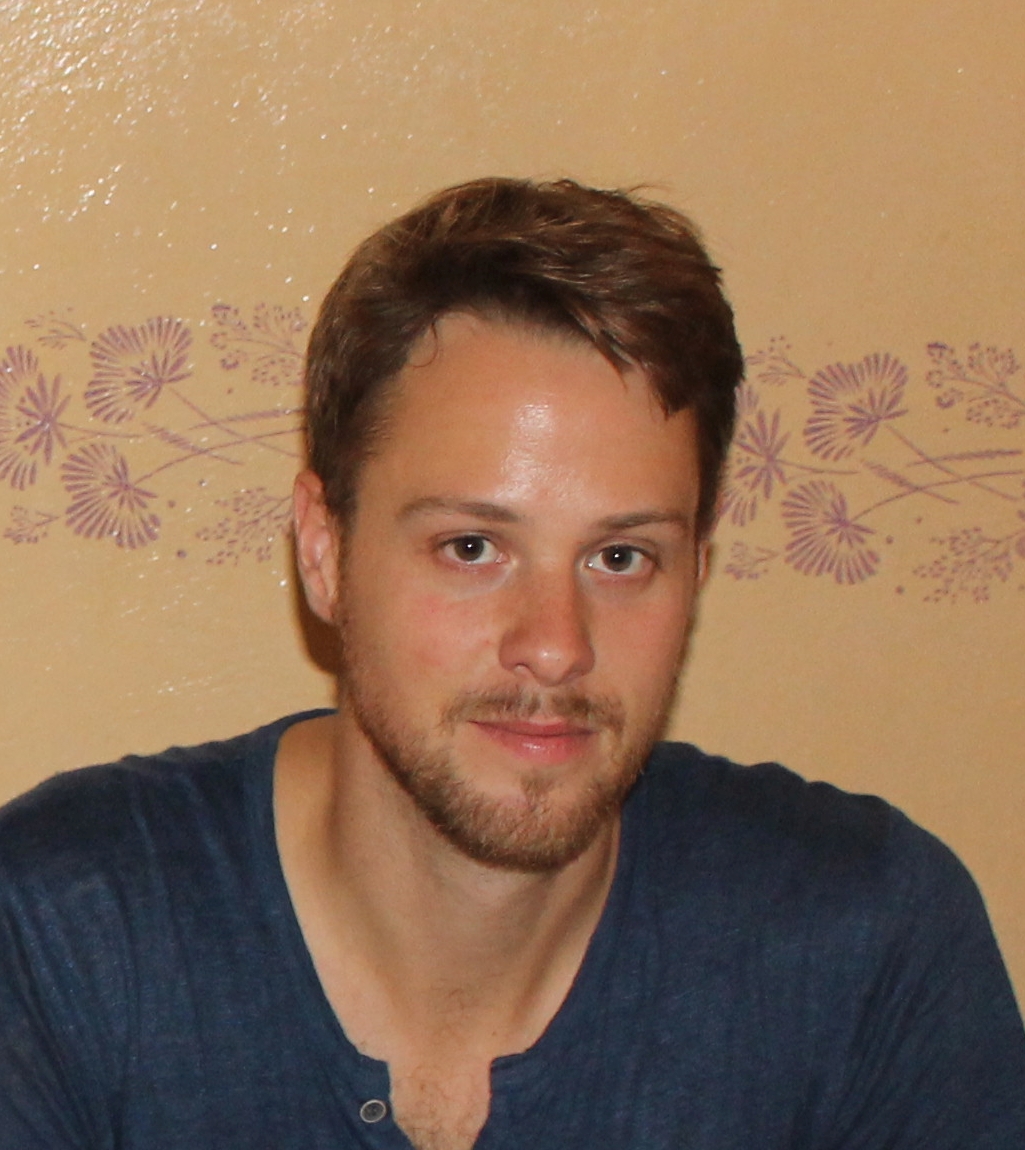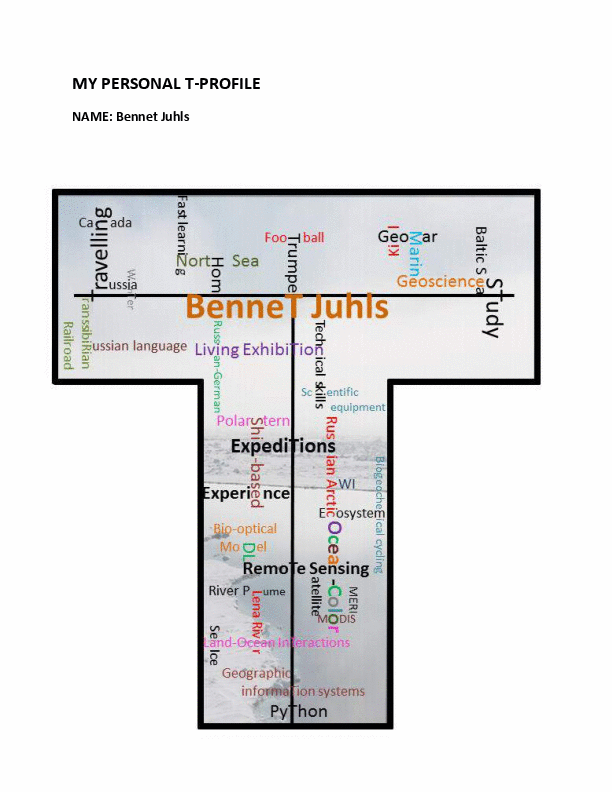
Bennet Juhls
(PhD candidate)
Freie Universität Berlin
Alfred Wegener Institute's research centre in Potsdam
German Aerospace Center (DLR)
Starting Date: 1st April 2017
T-Profile (view)
What is a T-Profile?
Looking outside of one's own (academic) box is part of the program of the Geo.X Young Academy: Since innovative solutions to complex problems require several disciplines, it is beneficial for problem solvers to speak different "languages" to ease understanding and allow for varying points of view. In order to attain better insight not only into your professional experience and academic knowledge, but also your interfacing expertise, interdisciplinary skills and projects. The vertical bar must be filled with relevant information about your academic studies. In the horizontal bar, you can map competencies and activities that transcend or do not relate directly to your field of study.
Supervisor: Prof. Dr. Jürgen Fischer (FU)
Partners: Dr. Paul Overduin (AWI), Harald Krawczyk (DLR)
Project: Land-ocean interactions in arctic coastal waters: Ocean Color remote sensing and the current trajectory of ecosystem change.
Arctic coastal and shelf regions are strongly influenced by climate warming and consequent sea ice reduction. The ecosystems of these regions are controlled by geo-bio interactions between ocean and land. Wind induced resuspension in shallow shelf areas river sediment input and coastal intensify turbidity events, causing low transparencies which affect large areas of the inner shelf. During such events, biogeochemical optical constituents such as colored dissolved organic matter Chlorophyll-a and Suspended Particulate Material absorb and scatter most light in the surface water. This PhD project focuses on Ocean Color (OC) remote sensing which provides a synoptic view of biogeochemical substances in the surface ocean with high spatial and temporal resolutions and therefore aids in a better understanding of land-river-ocean interactions in arctic shelf regions. In cooperation with the FU Berlin, DLR and AWI it is planned to develop improved regional OC products and apply them to study and monitor transport processes and long term changes in arctic coastal systems.


